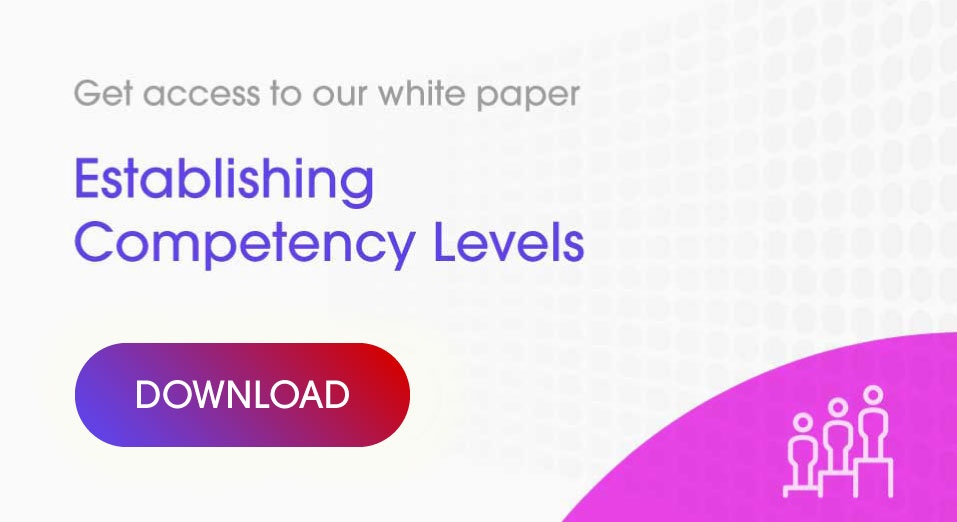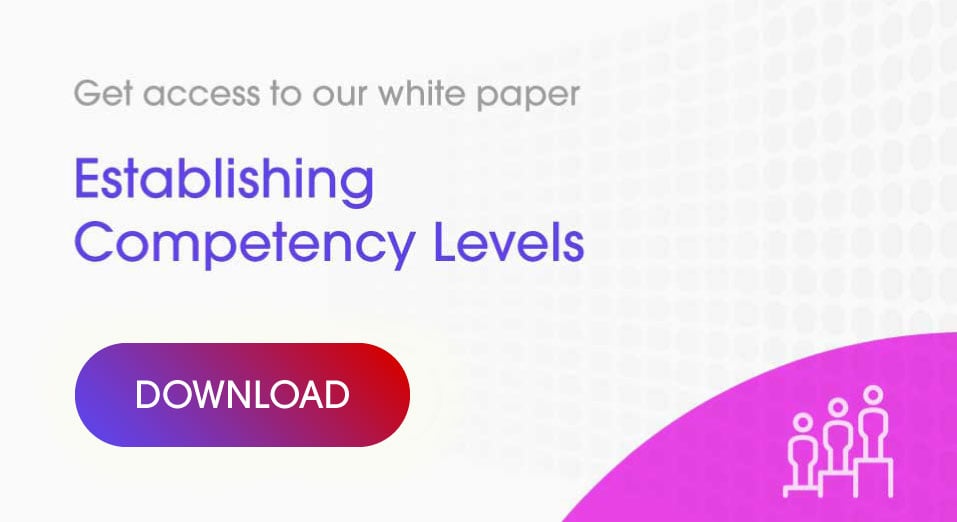It is a costly business maintaining an effective engaged field force. It takes time and effort from various roles in the organisation, as well as quantifiable investment in recruitment methodologies and development programs. Realistically, while the first 90 days is the typical benchmark of onboarding, it can take up to a year to get someone settled in and operating at a baseline level of competency.
To hire incorrectly is expensive. The total cost goes far beyond the recruitment fees and the loss in sales while the territory is either vacant or in the first 90 days. Recruitment is not a simple science, but you can increase your chance of getting it right.
Business simulations are one way to assess competencies in typical business scenarios. They can assess both skills and broad competencies, as well as provide an opportunity to observe behaviours, attitudes and personality traits, such as the ability to manage stress or work within a team.
Assessment Centres, that include ‘serious games’ or simulations, along with other standardised testing aligned to the role profile, can increase your chances of hiring the right rep the first time.
The Real Cost
Many rush into getting a rep on territory as fast as possible, under the assumption, a vacant territory represents a loss of sales and the faster it is filled, the quicker the bleed is reduced. This is a very short sighted viewpoint. Sales will continue on a vacant territory long after it has been vacated. In our industry we have both a lag effect of sales efforts we make and our national efforts have a flow on effect in all territories. So we need to consider the ‘carry-over effect’ of particular products in that territory along with the opportunity costs of hiring the wrong rep.
The Opportunity Cost, also known as alternative cost, is the value (not a benefit) of the choice of a best alternative cost. So the real costs in the situation of recruiting the right reps, can include, albeit it not limited to, the following:
- The loss of sales of a vacant territory;
- The loss of sales from an ineffective (new) rep over the first year;
- The monetary equivalent cost of time and effort, in onboarding programs by the HR and training functions;
- The monetary equivalent cost of coaching and buddy day provided by the sales manager and fellow colleagues (meaning a loss of sales opportunities on less productive days or a reduction in effective coaching of other members of the team that could be increasing their sales outputs);
- The monetary equivalent of damage and recovery investment in team morale, when poor recruitment turns out to be a cultural misfit (which can also result in sales deterioration or even the loss of performing team members if left unresolved for too long);
- And more...
The Role of the Rep
Reps are part of our multichannel marketing efforts and their role requires clarity to be most effective. We want to ensure a seamless customer experience. In a more dynamic multichannel customer-driven model, the role of the rep becomes rather blurred – somewhere between a sales person, an account manager and a marketer.
To be effective in an integrated multichannel strategy, the rep must be clear on the role they play, i.e. the human channel, and where it fits in the overall customer-engagement ecosystem. Absolute role clarity is critical to ensure synergistic organisational and brand outcomes versus competing fragmented or wasted efforts. The success of the new rep is only partially reliant on their competencies, and more significantly reliant upon the alignment of the organisation behind them. Experiencing some of the current challenges of the role during the recruitment phase gives the participant a realistic view of the job ahead.
So does the job description needing some dusting off and given a revamp?
And if so, does the recruitment process also need some re-alignment to ensure you are recruiting for the new evolving role of the rep, versus the rep role of the past? What longer term competencies and skills are needed for multi-channel sales?
Predictive
This ‘predictive’ nature of an Assessment Centre is the most well known reason for their use. In fact, the origin of the Assessment Centre model, was to assess suitability of army personnel to become officers or for espionage activities.
The first use of Assessment Centers dates back to World War I when Germany used the method to select their officers. During World War II, the practice was adopted by the United States’ Office of Strategic Services (OSS) to help them objectively select both military and civilian recruits for espionage activities. http://www.assessmentcenters.org/about
Assessment Centres try to simulate the kind of situations you might encounter in the job, and measure how well you deal with in real work conditions. Assessments are not always just computerised assessments, but rather a blend of methodologies and tools. An Assessment Center can consist of a set of standardised evaluations of behaviours: job-related simulations, interviews, and/or psychological tests. Role or functional simulations can be used to evaluate behaviours relevant to the most critical aspects (or competencies).
Mutual Benefits
KMPG is one company that use assessment centres are part of their recruitment process. According to KPMG, all exercises at the KPMG Assessment Centre revolve around a fictional organization and its personnel. During the exercises participants are assessed on how well their abilities match the KPMG core values and key competencies.
Participants usually become very involved with the simulation segment of an Assessment Centre, especially when in a competitive environment. This means they are more likely to behave in a natural manner and be less aware of the assessment process. Involvement and the adrenaline of competition often means that the simulation can reduce the pressure associated with them.
Peter Senge, author of The Fifth Discipline, had explained how human beings learn best from experience, particularly when feedback from actions is rapid and unambiguous. With the advancement of technologies, business simulations have come a long way and are common place.
Business simulations can provide a realistic environment to learn under a variety of typical or more potentially challenging conditions, and see the consequences of decisions made in real time. Simulations can effectively change mindsets in the shortest possible timeframe. By the nature of the technology and design, computerised simulations provide an opportunity to build in new complexity, challenging the learners to use what they have already done, to solve new challenges. The experience can enable time to be suppressed e.g. the learner can experience 5 years of a business in just 5 hours.
Help Is On Hand
By the nature of design, Assessment Centres provide objective data for you and the participants, coupled with the face-to-face interview, to make an insightful (predictive) choice. Assessment Centres remain a very relevant tool today, with clear measurable ROI metrics and enable data driven decisions in recruiting the right reps.
The Actando online Assessment Center, also called the COCKPIT, allows you to assess the knowledge, skills and abilities of your team. It can be used for a diagnosis of the current level or as a part of a blended learning programme to measure improvements after the programme. It uses a combination of quiz, case studies and feedback surveys (180 or 360). We own a bank of approximately 2,000 quiz in marketing and sales that we can use. But, of course we can customise and upload yours!
Click here for more information :https://actando.com/method/
---
If you are interested in our mobile learning solutions on digital channels, contact Actando.
The Actando Consulting Team







.jpg?width=850&name=shutterstock_1028968702(1).jpg)






